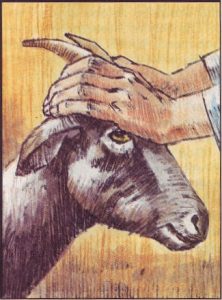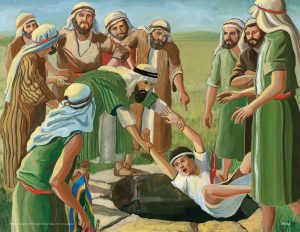Achrei Mois – Kedoishim 2018: Mitzvis We Struggle With
by devadmin | April 26, 2018 9:32 pm
 We begin this week with a big and hearty mazel tov to our dear friends Lemor and Murry Englard, who will be celebrating the bar mitzvah of their son Rafi this coming shabbis at the Young Israel of Woodmere. Mazel tov to Rafi’s siblings Sammy, Leora and Josh Rosenwald – and their daughter Ella, Rafi’s niece, as well as Mickey. Mazel tov as well to all of Rafi’s uncles, aunts, and cousins.
We begin this week with a big and hearty mazel tov to our dear friends Lemor and Murry Englard, who will be celebrating the bar mitzvah of their son Rafi this coming shabbis at the Young Israel of Woodmere. Mazel tov to Rafi’s siblings Sammy, Leora and Josh Rosenwald – and their daughter Ella, Rafi’s niece, as well as Mickey. Mazel tov as well to all of Rafi’s uncles, aunts, and cousins.
Raboyseyee and Ladies
Mitzvis We Struggle With:
Is proper shabbis observance challenging? Do you find keeping kosher -in and outside the house- too difficult? How about the myriad laws governing sexual purity? Have you been behaving? Always? Taka they are all challenging, each in their own unique way, ober this week, as we read parshas Kedoishim, the back end of the last of the double-headers found in Sefer Vayikro (Leviticus), parshas that Rafi Englard will be laining in honor of his bar mitzvah, we will come across commandments that are – in the Oisvorfer’s opinion and mistama many others – most challenging to observe. The Oisvorfer states with a degree of certitude that he knows not one person who can honestly confirm proper observance of these mitzvis. We are all guilty as charged. What could be more challenging then the proper observance of tashmish (relations), even with one’s own wife? Let’s find out but first…. Welcome to parshas Achrei Mois and Kedoishim which the heylige Oisvorfer is reviewing for the eighth time. Incidentally, over the summer we will be completing our eights cycle of weekly reviews of the entire heylige Toirah. Season nine begins with parshas Vo’eschanan: stay tuned.
Achrei Mois deals with the avoido (the service) the Koihen godol (High Priest) performed on Yom Kippur. In very colorful detail, the heylige Toirah describes how, through his service on that day, which included the sending off of one he-goat to a place called Azozale -somewhere in the wilderness- and then having it -the poor unsuspecting behaymo- thrown off the cliff- the inequities of the Yiddin, all of them, are to be forgiven. Shoin: how all this forgiveness works and why and how an innocent animal being thrown to its death while another is offered to the RBSO in the form of a korban (sacrifice), gives the Yiddin a clean slate, ver veyst!? Ober, if that’s what the heylige Toirah teaches us, and it does, we are good to go. We sin: the goat dies! We want Moshiach now! Let’s get that Beis Hamikdash (Temple) rebuilt speedily in our time. Hyntige Yiddin (today’s Jews), most anyway, are in fact sinners -each in his or her own way- and zicher we could use some forgiveness. And for good measure, the back end of Achrei Mois also delineates forbidden familiar relationships.
 Seemingly, the Yiddin, while in Mitzrayim, and even in the desert prior to Matan Toirah (Revelation), regularly partook of such pleasures, if you chap, which they did. How they considered a number of these relationships pleasurable, ver veyst? Did it ever cross your mind to bed your mother-in-law? It did theirs. The bottom line: if the heylige Toirah told us not to bed certain family members, including the family dog, or whatever pet one has, and then -in parshas Kedoishim- spelled out the very severe and permanent consequences for those who violate (death it is, my friends), zicher the RBSO knew just who His clientele was. He warned us in Achrei Mois and then, having been warned to stay away, shared with us the consequences of such behavior. Has that worked out as intended? As to familial relationships, for the most part, yes. As to other forbidden relationships, if you chap, not so well.
Seemingly, the Yiddin, while in Mitzrayim, and even in the desert prior to Matan Toirah (Revelation), regularly partook of such pleasures, if you chap, which they did. How they considered a number of these relationships pleasurable, ver veyst? Did it ever cross your mind to bed your mother-in-law? It did theirs. The bottom line: if the heylige Toirah told us not to bed certain family members, including the family dog, or whatever pet one has, and then -in parshas Kedoishim- spelled out the very severe and permanent consequences for those who violate (death it is, my friends), zicher the RBSO knew just who His clientele was. He warned us in Achrei Mois and then, having been warned to stay away, shared with us the consequences of such behavior. Has that worked out as intended? As to familial relationships, for the most part, yes. As to other forbidden relationships, if you chap, not so well.
Ober if you think the restrictions on such relationships and their respective punishments are challenging to observe, they pale by comparison to commandments which await us in Kedoishim. To wit: In kedoishim we are taught to love one’s friend as one love’s oneself. Let’s read the words innaveynig. In fact, let’s read a few pisukim (verses) to set the stage. Says the heylige Toirah (Vayikro 19: 17-19) azoy:
| 17. You shall not hate your brother in your heart. You shall surely rebuke your fellow, but you shall not bear a sin on his account. | יזלֹֽא־תִשְׂנָ֥א אֶת־אָחִ֖יךָ בִּלְבָבֶ֑ךָ הוֹכֵ֤חַ תּוֹכִ֨יחַ֙ אֶת־עֲמִיתֶ֔ךָ וְלֹֽא־תִשָּׂ֥א עָלָ֖יו חֵֽטְא: | |
| 18. You shall neither take revenge from nor bear a grudge against the members of your people; you shall love your neighbor as yourself. I am the Lord. | יחלֹֽא־תִקֹּ֤ם וְלֹֽא־תִטֹּר֙ אֶת־בְּנֵ֣י עַמֶּ֔ךָ וְאָֽהַבְתָּ֥ לְרֵֽעֲךָ֖ כָּמ֑וֹךָ אֲנִ֖י יְהוָֹֽה: | |
| 19. You shall observe My statutes: You shall not crossbreed your livestock with different species. You shall not sow your field with a mixture of seeds, and a garment which has a mixture of shaatnez shall not come upon you. | יטאֶת־חֻקֹּתַי֘ תִּשְׁמֹ֒רוּ֒ בְּהֶמְתְּךָ֙ לֹֽא־תַרְבִּ֣יעַ כִּלְאַ֔יִם שָֽׂדְךָ֖ לֹֽא־תִזְרַ֣ע כִּלְאָ֑יִם וּבֶ֤גֶד כִּלְאַ֨יִם֙ שַֽׁעַטְנֵ֔ז לֹ֥א יַֽעֲלֶ֖ה עָלֶֽיךָ: |
Now let’s get real: is the observance of these commandments even remotely possible? Is there a person on this earth -dating back to Odom (zicher not his two sons!)- who is able to sincerely love one’s friend as he loves himself? Posik 17 commands us not to hate our brothers in our hearts. Let’s get real: we all have people we can’t stand. Some we hate mamish! In posik 18, we are instructed not to take revenge and not to bear a grudge against members of our own people. Does this exclude non-members? May we carry grudges against goyim (gentiles)? Believe it or not, this too is debated. OMG! Did we not lose the second Beis Hamikdash because people were guilty of baseless hatred? We did! If people hate one another, slander and bad mouth one another without good cause, al achas kamma v’kammo (it is plainly understood using one of the 13 principles of logical thinking, this one called the a fortiori argument) that people will hate those who mamish gave them cause. How are we to perform these very difficult to observe commandments? Yikes!
 Yearly as we read (back in Bereishis), the travails Yoisef suffered at the hands of his brothers, the holy shevotim, the Oisvorfer himself gets enraged and wonders what kind of holy people could do this to a brother? Yoisef? What the hec is Yoisef doing in our parsha? Ober, listen to this: based on the instructions in posik 17 not to hate people in our hearts, the medrish tells us azoy: the brothers were in fact tzadikim, totally righteous. How so? Davka because they did not hate Yoisef in their hearts: they followed directions. They told him and certainly showed him how they felt about him. There was little doubt. Givaldig. Shoin, who can argue with such logic? And taka says the Oir Hachaim azoy: should your friend piss you off, get you really angry, efsher even mad -ok, he say it more elegantly- you should talk it out with him. Do not however hate him in your heart.
Yearly as we read (back in Bereishis), the travails Yoisef suffered at the hands of his brothers, the holy shevotim, the Oisvorfer himself gets enraged and wonders what kind of holy people could do this to a brother? Yoisef? What the hec is Yoisef doing in our parsha? Ober, listen to this: based on the instructions in posik 17 not to hate people in our hearts, the medrish tells us azoy: the brothers were in fact tzadikim, totally righteous. How so? Davka because they did not hate Yoisef in their hearts: they followed directions. They told him and certainly showed him how they felt about him. There was little doubt. Givaldig. Shoin, who can argue with such logic? And taka says the Oir Hachaim azoy: should your friend piss you off, get you really angry, efsher even mad -ok, he say it more elegantly- you should talk it out with him. Do not however hate him in your heart.
Should that same friend have hurt you financially, instead of hating him in your heart and violating this important precept, you can always take him to a din-toirah (rabbinical court), where, after listening to both sides, the panel will force some settlement on you. By definition, you will automatically lose half though you are entitled to all. And why is that? Because in our times, one is hard pressed to find a real rabbinic court willing to rule based on evidence. Instead, one goes in and needs to be prepared to lose half. The good news: by going this route, you will not violate the commandment ‘not to hate in your heart.’ At a din-toirah, you can tell your chaver and all those assembled just how you feel. Sadly, you will likely violate another commandment: how can you love your friend as you do yourself when he just baganvid (ripped you off)? Check mate!
And what’s taka pshat in not bearing a grudge? The entire world revolves around carrying grudges. Who among us does not have an uncle, aunt, cousin, former business partner, someone we lent money to or otherwise helped in time of need, stam a friend in shul, or wherever, with whom s/he does not talk to anymore davka because you are “broiges” (pissed off) over something they, did or didn’t do, said or repeated? Who? No one! What would life be like were people not to carry grudges and all get along? And the answer is: we don’t know. We don’t because there was never such a time. Will we ever see such a time? ver veyst!? Mistama not until the Moshiach arrives. When will that happen? When people get along. When will that happen? never! Unless of course, the RBSO gives up on Man – He has done so before- and decides to send him anyway. Of course, we wait and pray for his arrival daily.
 Shoin, let’s move on to the last few words of posik 18, efsher we can solve the world’s problems by focusing on baseless love; Vi’ohavto li’rayacho komoicho, let’s all love one another. Let’s all love our friends as we love ourselves. Avada such love must be dispensed legally, if you chap. Ober, what’s taka pshat here? Nu, the heylige Gemora and a number of others, pontificated over these words. Songs have been composed by the ‘Rabbi’s Son’s,’ (remember them?) and others, to these very beautiful words. Was Rebbe Akiva correct when he stated that this loving is a “klall godol batoirah,” a very important concept in our heylige Toirah? Ober is this real? Were these words meant to be taken literally? Can this mitzvah be performed? Let’s find out.
Shoin, let’s move on to the last few words of posik 18, efsher we can solve the world’s problems by focusing on baseless love; Vi’ohavto li’rayacho komoicho, let’s all love one another. Let’s all love our friends as we love ourselves. Avada such love must be dispensed legally, if you chap. Ober, what’s taka pshat here? Nu, the heylige Gemora and a number of others, pontificated over these words. Songs have been composed by the ‘Rabbi’s Son’s,’ (remember them?) and others, to these very beautiful words. Was Rebbe Akiva correct when he stated that this loving is a “klall godol batoirah,” a very important concept in our heylige Toirah? Ober is this real? Were these words meant to be taken literally? Can this mitzvah be performed? Let’s find out.
Says the Ramban (Nachmanidies): loving one’s friend as one loves himself, is not to be taken literally. Shoin: chalk one up to the rational thinker. Ober, said Reb Moishe Chaim Luzatto: the words are to be taken literally: one is to love his neighbor as one loves himself. Zicher he didn’t mean that one should make love to his neighbor, especially so if she is married. He as well!
Says the heylige Gemora (Kidushin 41A) where discussing the meaning of these words and debating how they should be interpreted, azoy: because we are commanded to love one’s friend as we love ourselves, it is expressly forbidden to marry without first having seen the bride. Marriage and a bride? How is this restriction relevant to loving one’s friend as one loves himself? And why not? Because were one to marry without first having laid eyes on his bride, upon seeing her for the first time, were he to find her not to his liking, not attractive, all hell could break loose. How so? One could come not to love her as he loves himself and violate this great mitzvah. Shoin, another case where sex was introduced in order to help us commoners chap pshat in the words. Seemingly our sages chapped that in order to illuminate difficult commandments and to keep us focused on the mitzvah, though we don’t necessarily chap its rational or proper observance, they need to introduce sex. It sells, and it seemingly teaches by example. Not to be outdone, says the heylige Gemora (Nidda 17a), azoy: it is forbidden to have sexual relations with one’s wife during the daytime. Zicher one should not engage in such activity with his friend’s wife. What could be so giferlich about daytime sex? Again, the thinking is that he may see a few things during daylight hours that he doesn’t like, thereby causing the person to be unable to perform (the mitzvah as well) of loving one’s friend -in this case, his wife, as he loves himself.
Want more? Says the Ba’al Haturim, indeed a very clever man, azoy: the words of V’ohavto Li’rayacho Komoicho were juxtaposed to a verse which follows. That verse tells us -commands us- not to crossbreed with another species. In Hebrew we call this ki’layim, mixing seed. Says the Ba’al Haturim azoy: since the positive mitzvah (one of only 13 positive commandments out of 51 total are found in parshas Kedoishim), was juxtaposed to the verse commanding us to love one’s friend or neighbor, as one loves himself, and pshat is azoy: a man who loves his wife, should not be thinking about another woman while servicing or pleasuring his wife. He said what? And he was serious? Shoin, who among us, and let’s be honest, can state with a straight face that he has not violated this commandment? No one! Then he adds: and one should not force his wife to engage in relations. And to that thought, adds the Mioshav Zikaynim on the heylige Gemora (Eyruvin 110b) azoy: if one coerces his wife into relations, chazir that he would be, children born from that union will not be of good character. Take that!
The bottom line: efsher we can solve the worlds ills by practicing some free love. Ober, before you do just that…make sure you see the person you are loving lest you end up violating this great mitzvah and important concept. Seemingly our rabbis chapped that the words as written in the Toirah -Viohavto lirayacho komoicho- have many deeper levels of understanding.
And we close with a few words of wisdom form Ovis D’Rebbe Nosson who said azoy: Who is a hero? One who is able to make a friend from a foe.
A gittin Shabbis
The Heylige Oisvorfer Ruv
Yitz Grossman
Source URL: https://oisvorfer.com/achrei-mois-kedoishim-2018-mitzvis-we-struggle-with/